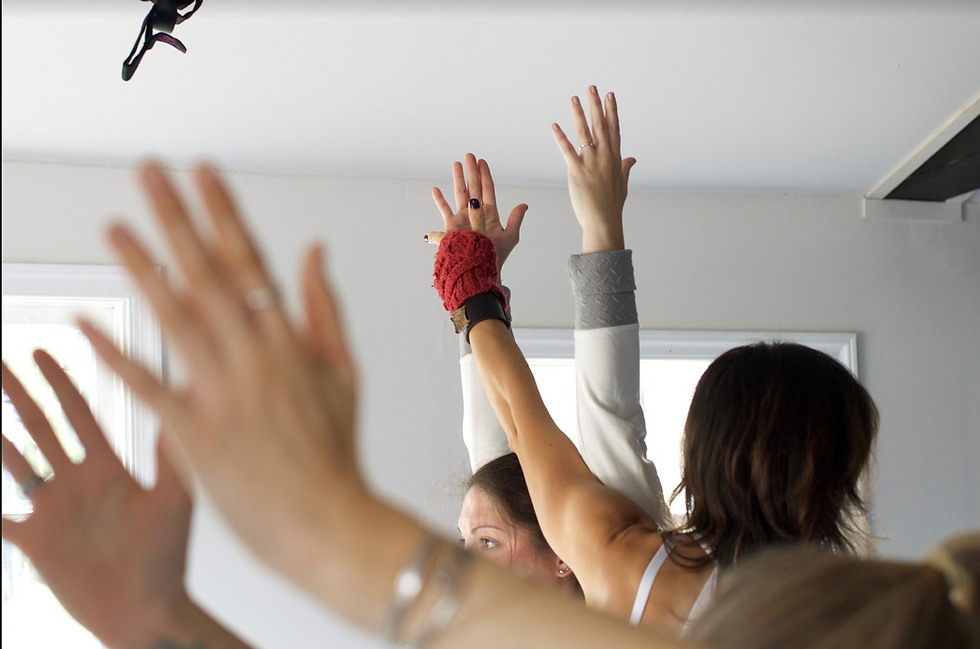The House of Belonging
- Danielle

- Nov 27, 2018
- 3 min read
Updated: Mar 31, 2020
The root chakra embodies your ability to belong in this world. To fight off disease, to occupy space within social or communal settings and to believe in your right to be here. The foundation for all we do begins with being mindful of our self-worth and the wonderful contributions we are here to make.

Before all else, a sense of belonging is necessary to establish and grow a robust and healthy life. This is the root chakra. It is our connection to the earth, our place in the world, and the reassurance that we belong, no matter where it is we may be. To borrow a phrase from poet David Whyte, the root chakra is “The House of Belonging”. Legs, feet, base of the spine and the immune system are all housed within this chakra, and thus not only is this our perceived foundation in the world but also the literal foundation of our body, without which we are susceptible to being crippled by poor health or immobility. The families, places and cultures which raise us are responsible for establishing our initial roots. This can result in a wonderfully secure foundation or it can be dangerously vulnerable. As we mature and develop consciousness, we learn, reflect and develop our own beliefs and ideas about the world. In doing so, our initial foundation may begin to crack and falter. The roots from which we have sprung may be left to whither, as we recognize false or unhealthy stories which we've been told for too long. Conflicts may arise within families, communities and entire nations leading to division and separateness. When this happens a person or community must work hard to rebuild the root chakra, for without it, we will forever be fighting an uphill battle. Not surprising, “the demon of the root chakra is fear.” Fears surrounding basic necessities like food, shelter, money and being accepted by others live, breathe and manifest here. When we face times of financial difficulty, social acceptance or housing uncertainty, we are likely to face resulting health concerns or develop unhealthy dependencies. The impoverished are consistently more prone to sickness and disease than are the rich. In The Anatomy of the Spirit, Dr. Caroline Myss, fascinatingly connects the polio outbreak of the thirties and forties in America with the preceding economic depression. Signs of an imbalanced root chakra are “Excessive Energy” on one side and “Deficient Energy” on the other. Hoarding (money, food, things, etc.) and aversion to change, both products of fear, are associated with an excessively stressed root chakra. While flightiness, the inability to maintain stillness and constantly looking elsewhere for answers, pleasure, wisdom or a home are characteristics of a weak, or deficient, root chakra. Somewhere in the middle is where we find balance between being grounded where we are, in our bodies and lives, while not being afraid of change and growth. How does one find this balance? Showing up is essential. Choosing not to hide or sulk and moving beyond whatever insecurities may influence our beliefs and choices. Just showing up and being accepting or loving of ourselves in whatever settings we land, whatever states we may be in, is the most important step. Mountain, chair, warrior and seated postures in yoga are all wonderful for engaging and exercising our root chakras, helping generate and maintain balance. We can practice centering our attention and breath on the connection points between our bodies and the ground. It is important to sense and believe that we belong within our communities, within families, amongst friends and amongst the rivers and trees. The word “contribution” comes to mind. Being aware of the contributions that every life form, ourselves included, have to offer the world can go a long way to warding off thoughts of poor self worth, or overcoming the urge to overcompensate. The humility of nature offers itself as a wonderful teacher in this regard. We can learn much about the root chakra by walking barefoot through a forest, feeling our feet connect to the earth and witnessing the ways many different plants and animals are able to find their unique roles within an ecosystem to coexist. The overloaded mind may take this time to release thoughts and the body recycles energy back through the legs, strengthening the foundation. The roots find space in the dense soil to move a little deeper and find an even firmer hold within the world.







Comments